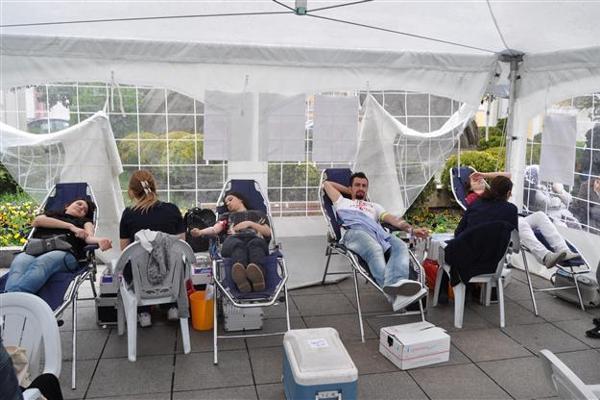Homosexuals cannot donate blood as they are in ‘risky group,’ says Turkish Red Crescent head
ISTANBUL


“Only homosexuals are in the risky group for donating blood. The HIV/AIDS virus is commonly seen in homosexuals and it is transmitted to others through homosexual intercourse or through blood,” news website Radikal quoted Kızılay head Ahmet Lütfi Akar as saying on a private broadcast show.
Akar’s answer came as a response to the anchorman asking why the question of sexual preference was asked to the donators, among other questions, in the form filled before donation.
“We absolutely have no problem with one’s homosexuality, bisexuality or heterosexuality,” said Akar, adding that the reason for asking this question to donators was to minimize the risk of accepting blood that may contain the HIV/AIDS virus.
According to the Health Ministry’s 2013 data, Turkey has 6,802 patients diagnosed with the HIV/AIDS virus, while the first time the virus was found in Turkey was in 1985 with three patients.
“We test if there is a virus in the blood or not. We use the most modern methods. Our infrastructure has been renewed. Whatever you do, there is always the risk of transmitting the virus during blood transfusions, even if it is one in a million. There is a way to minimize this: Individuals who suspect themselves [of having the virus] will declare this,” said Akar.
Stating they did not receive any reactions from homosexuals for these questions because it is a “scientific reality,” Akar said they also did not accept blood donations from individuals who have traveled to Africa.
While the lifelong blood donation ban on men who have sex with men (MSM) was lifted in the U.K., excluding Northern Ireland, in 2011, the time to wait for MSM individuals to donate blood has been decreased to one year.
The blood donation of MSM in the U.S. is indefinitely barred, while there is no time restriction to wait if the individual’s last MSM activity was before 1977.
